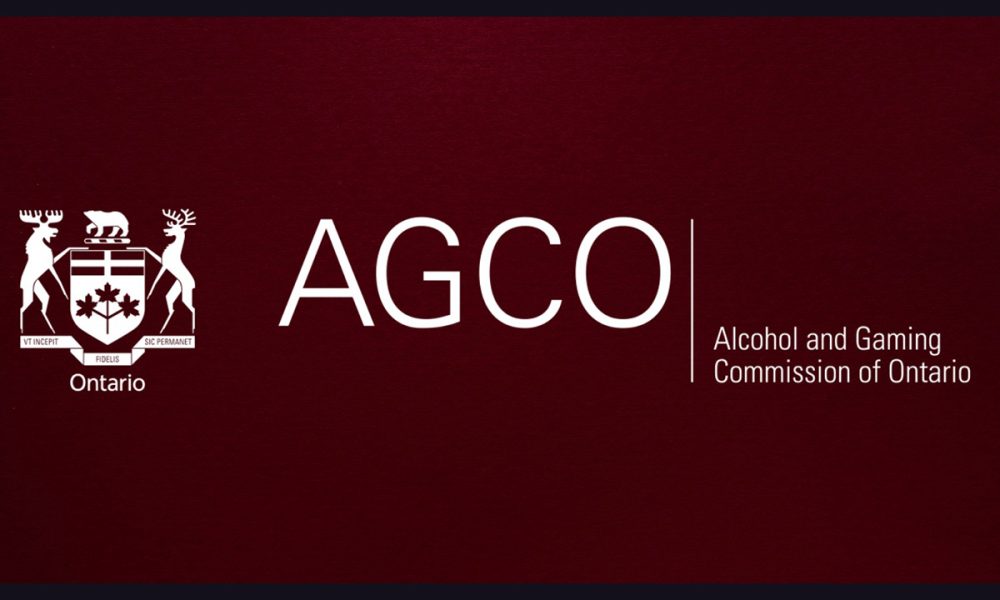

Canada
Great Canadian Gaming Announces Second Quarter 2020 Results
Great Canadian Gaming Corporation announced its financial results for the three month period ended June 30, 2020 (the “second quarter”).
SECOND QUARTER 2020 UPDATES
The Company’s gaming facilities and ancillary amenities across the country have been temporarily closed since March 16, 2020 in an effort to contribute to the containment of the COVID-19 coronavirus pandemic (“the pandemic”).
Shareholders’ net loss from continuing operations of $31.4 million or $0.57 per common share in the second quarter, compared to shareholders’ net earnings from continuing operations of $48.0 million or $0.81 per common share in the same period in the prior year.
The Company has resumed certain Ontario capital projects after government mandated closures on non-critical construction projects were lifted by the Government of Ontario on May 19, 2020.
“We had a full quarter of business closure as a result of the temporary suspensions since March 16, 2020 in response to the pandemic. While we have taken actions to significantly reduce our operating expenses during the closure period, our second quarter results were negatively impacted materially by the closures. Since the closure of our 25 operations across the country almost five months ago, we worked closely with key stakeholders such as our Provincial Crown corporations and regulators to ensure our plans properly address provincial health authorities’ guidance and recommendations as provincial economies reopen,” stated Rod Baker, the Company’s Chief Executive Officer. “Certain provinces have now approved casinos to reopen as part of their phased reopening plans, and we are working diligently on determining the reopening timelines and dates as we complete the necessary health and safety enhancements outlined in our plans.”
FINANCIAL REVIEW
The temporary closures of the Company’s operations resulted in a decrease in revenues, expenses, Adjusted EBITDA1, Free Cash Flow1, and cash flows when compared to the same period in the prior year.
During the second quarter, the Company took measures to significantly reduce its operating expenses to mitigate the decline in revenues from the gaming facility closures. Human resource expenses in the second quarter primarily consisted of costs related to remaining personnel required to support the business during the closure period. For the three months ended June 30, 2020, approximately half of the property, marketing and administration expenses were related to direct property operating costs, including property taxes, insurance, utilities and maintenance, with the remaining half related to administration costs, including licenses, subscriptions and professional fees.
Revenues and Adjusted EBITDA for the second quarter were $62.8 million and $31.8 million, respectively. Revenues for the second quarter primarily consisted of the Ontario bundles’ annual entitlement of service provider fees for permitted capital expenditures recognized in full in the second quarter and continued service provider base fixed fees under the respective casino operating agreements, which resulted in a positive Adjusted EBITDA. Adjusted EBITDA was also positively impacted by $20.9 million in lease payments which are no longer recognized as operating expenses in Adjusted EBITDA due to the implementation of IFRS 16, the new lease accounting standard adopted in the prior year.
The Company recognized negative cash flows in the second quarter due to the temporary suspension of operations. In the second quarter, the Company had negative of $123.4 million, which was consisted of Adjusted EBITDA of $31.8 million, as previously discussed, less changes in non-cash working capital of $22.2 million, capital expenditures of $98.6 million, substantially all of which was in Ontario, payment of lease liabilities of $20.9 million, and interest paid of $13.5 million. The Company funded the negative Free Cash Flow of $123.4 million by borrowing an additional $60.7 million on its credit facilities for capital expenditures in Ontario and the remainder from available cash balances.
The Company had cash outflow of $383.7 million for the second quarter. Prior to the end of the first quarter of 2020, the Company drew $325.0 million on the revolving portion of the Senior Secured Credit Facilities to ensure it had sufficient liquidity available, which was repaid in full during the second quarter of 2020. Other cash outflows for the second quarter included payments to satisfy working capital obligations, payment of lease liabilities and capital expenditures, as discussed above.
Shareholders’ net loss from continuing operations was $31.4 million in the second quarter due to the above mentioned facility closures, which had a negative impact on revenues.
SOURCE Great Canadian Gaming Corporation
AGLC
Casino ATM Scam in Edmonton Reveals Money Laundering and Drug Links

Law enforcement in Alberta continues to search for the last suspect in a sophisticated fraud operation that targeted ATMs in Edmonton-area casinos and resulted in over CAD 1 million ($720,487) in losses throughout Western Canada.
The Royal Canadian Mounted Police (RCMP) has confirmed that Hisham Ismaeel, 28, remains at large with a province-wide warrant for his arrest. He faces charges of fraud exceeding $5000 and possessing proceeds of crime. Police have already arrested four other men linked to the scheme. Investigators describe the operation as a well-planned effort to exploit financial systems and clean dirty money.
The accused, Elliot Miao, 42, Van Bau Ta, 39, Hassan Jaafar Haydar Ahmad, 37, and Dennis Jones, 42, showed up in the Alberta Court of Justice last week. They face charges from fraud and money laundering to owning criminal property. Miao also has a narcotics trafficking charge after police found cocaine when they searched with warrants.
Investigators claim the group made coordinated withdrawals at several casino ATMs, timing their transactions to avoid getting caught. This action messed up ATM networks in the area and showed flaws in the systems that banks and casinos use to stop misuse.
The RCMP Federal Policing Northwest Region led an investigation that involved six search warrants in Edmonton. The Edmonton Police Service, the Financial Transactions and Reports Analysis Centre of Canada (FINTRAC), Alberta Gaming, Liquor and Cannabis (AGLC), and several banks supported this effort. Officials said the case shows how teamwork between public agencies and the private sector plays a key role in combating modern financial crime.
AGLC representatives pointed out that casino operators in the province must follow strict reporting and surveillance rules under Canada’s anti-money laundering laws. The specific casinos affected remain unnamed, but the Edmonton region has seven licensed facilities. AGLC said its policies helped spot problems and backed the RCMP’s investigation.
Compliance experts say this fraud shows how criminals change their methods to take advantage of weak spots in reporting limits and transaction checks. They claim that casinos, which deal with lots of cash, are still easy targets unless they keep improving their detection systems and teach their front-line workers to notice coordinated actions like several big withdrawals happening one after another.
For now, the case highlights both the money and crime aspects of casino-related fraud. Besides the million-dollar losses, finding drugs during the raids points to a bigger criminal operation where financial crimes and drug dealing overlap.
The post Casino ATM Scam in Edmonton Reveals Money Laundering and Drug Links appeared first on Gaming and Gambling Industry in the Americas.
Bragg Gaming
Bragg Confirms Cyber Attack – Hackers Access Internal IT Systems

Bragg Gaming Group, a leading online gaming technology provider, has confirmed a major cybersecurity incident that compromised its internal IT infrastructure in the early hours of Saturday, August 16, 2025.
The company detected unauthorized intrusion attempts that successfully breached its internal network, triggering an immediate and comprehensive incident response.
Key Takeaways
-
Bragg Gaming Group experienced a cybersecurity breach involving access to internal IT systems.
-
No customer personal data or payment information appears to have been compromised.
-
The company has enacted full containment and investigation protocols.
Details of the Breach
According to a preliminary forensic analysis by Bragg’s internal security team, the attack was a targeted breach aimed at the company’s internal computer environment. While the exact method of intrusion is still under investigation, early indicators suggest a sophisticated exploit of internal network vulnerabilities.
Fortunately, the company’s customer-facing systems, including sensitive user data and financial information, appear to have been unaffected. Bragg’s existing encryption protocols and access control systems successfully prevented the attackers from accessing customer information.
Immediate Response Measures
In response to the breach, Bragg launched a multi-tiered containment strategy, including:
-
Network Segmentation to isolate affected systems
-
Enhanced Monitoring of data flows across its Remote Games Server (RGS) platform
-
Security Audits of critical infrastructure, including the Bragg Hub and PAM systems
-
Engagement of Independent Cybersecurity Experts to assist in incident analysis and system hardening
Bragg’s Security Operations Center has also elevated its alert level, initiating 24/7 monitoring across all server clusters and network endpoints. In addition, company-wide penetration testing is now underway to proactively identify any residual vulnerabilities.
Business Continuity Maintained
Despite the severity of the breach, Bragg reports that its operations remain unaffected. All gaming services, including iCasino and sportsbook offerings across regulated markets, continue to function without disruption.
“While this incident is deeply concerning, we are confident in the rapid and thorough response initiated by our team,” a company spokesperson stated. “We remain committed to protecting our infrastructure, our partners, and most importantly, our players.”
Looking Ahead
As part of its response, Bragg has also launched mandatory security awareness training for all employees to reinforce best practices and prevent future incidents.
Cybersecurity analysts will continue working with Bragg to determine the full scope of the attack, improve system resilience, and maintain the trust of its users and stakeholders.
Bragg’s handling of the incident highlights both the evolving nature of cybersecurity threats and the importance of robust, responsive defense systems in the digital gaming sector.
Source: cybersecuritynews.com
The post Bragg Confirms Cyber Attack – Hackers Access Internal IT Systems appeared first on Gaming and Gambling Industry in the Americas.
AGCO
AGCO Removes Cap on Seller Commission for Charitable Lottery Products

The Alcohol and Gaming Commission of Ontario (AGCO) has updated several lottery policies to remove the cap on seller commission for Paper Raffles and Media Bingo, along with removing the prohibition on Catch the Ace paper lotteries, to align with other charitable lottery products.
Licensed charities may now negotiate commissions directly with sellers and determine commissions, provided they are reasonable and tied to the cost of service provided by the seller.
These updates further the AGCO’s commitment to adopt an outcomes-based regulatory approach and reduce burden for the charitable gaming sector. Local charitable organizations will have greater flexibility to make decisions that best serve their fundraising objectives.
Important Reminders
• Charities must still receive approval for other expenses incurred under their licence and retain receipts for seller commission paid.
• Licensing authorities will not require documentation to be submitted as part of the application process, however, charities are still subject to audit to determine compliance.
• Charities are reminded of their legal requirement to meet their obligations under the Criminal Code and with respect to conducting and managing a charitable gaming scheme.
• As with all licensed charitable lottery events, charities must take the necessary steps to ensure that they are conducting and managing the lottery event within Ontario.
For charitable gaming-related inquiries, email an AGCO Eligibility Officer at [email protected] or call AGCO Customer Service at 1-800-522-2876, Monday to Friday from 8:30 a.m. to 5 p.m.
The post AGCO Removes Cap on Seller Commission for Charitable Lottery Products appeared first on Gaming and Gambling Industry in the Americas.
-

 gaming3 years ago
gaming3 years agoODIN by 4Players: Immersive, state-of-the-art in-game audio launches into the next generation of gaming
-
EEG iGaming Directory8 years ago
iSoftBet continues to grow with new release Forest Mania
-
News7 years ago
Softbroke collaborates with Asia Live Tech for the expansion of the service line in the igaming market
-
News7 years ago
Super Bowl LIII: NFL Fans Can Bet on the #1 Sportsbook Review Site Betting-Super-Bowl.com, Providing Free Unbiased and Trusted News, Picks and Predictions
-
iGaming Industry8 years ago
Rick Meitzler appointed to the Indian Gaming Magazine Advisory Board for 2018
-
News7 years ago
REVEALED: Top eSports players set to earn $3.2 million in 2019
-
iGaming Industry8 years ago
French Senator raises Loot Boxes to France’s Gambling Regulator
-
News7 years ago
Exclusive Interview with Miklos Handa (Founder of the email marketing solutions, “MailMike.net”), speaker at Vienna International Gaming Expo 2018









